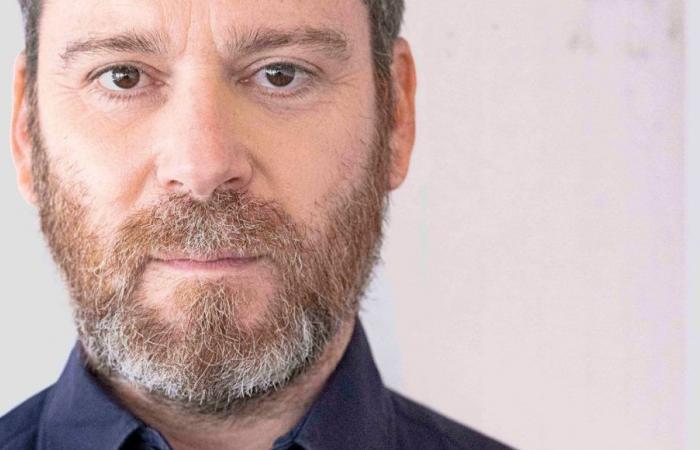In twenty-five years and around twenty productions, director Arthur Nauzyciel has established himself as one of the leading figures of contemporary theater that is both popular and demanding. Deeply marked by the teaching of Antoine Vitez who was his teacher at the end of the 90s at the Chaillot school, Arthur Nauzyciel also knows how to create theater for everything and make classic texts resonate in the present. After a few years spent playing under the direction of some illustrious theater men (from Villégier to Savary, from Vigner to Alain Françon and Laurent Pelly) he was immediately noticed by critics by offering a very personal rereading of Molière’s monument The Imaginary Sick or the silence of Molière according to Molière and Giovanni Maccia (1999). Since then, Arthur Nauzyciel has always followed the same approach; of the creation of Black battle with dogs of Koltès in Atlanta (2001), to that of Julius Caesar from Shakespeare to Boston (2008), including the adaptation of Yannick Haennel’s novel on Jan Karskiand the creation of The Seagull by Chekhov in the Court of the Popes in 2012, he works on the areas of indistinction between the past and the present, dream and reality, the living and the dead, in the hope of allowing a form of reparation. His theater is therefore profoundly a work of dialogue, which finds its natural extension in the multidisciplinary artistic community that he creates around the TNB of which he has been director since 2017.
Today is the occasion of his staging of Screensa monster play by Jean Genet that he himself saw for the first time in the production of Patrice Chéreau when he was only a young teenager discovering the poetic and political power of theater, which Arthur Nauzyciel sits down at Arnaud Laporte’s microphone to tell us about the memories and stories that work in his theater.
Do work of transmission
At the start of 2024, Arthur Nauzyciel took over The Imaginary Sick or the Silence of Molière25 years after its creation: “Our first class left the TNB and I asked myself the question of resuming this show, with Laurent Poitrenaux, Catherine Vuillez and me, all three of whom were creative, and seven of our ex-students who had become young actors and actresses. professionals. By entrusting this show to these young actors and actresses, it added a dimension of reality, that of the passing of the baton, to a show which was already about the question of heritage, transmission, intimacy, family …And so that’s what made me want to take it again. I must say that the reception of the show was very strong, very moving. But for me, replacing my father in the role he played at the time, it was quite strange. I can’t say it was a very happy moment. I think it was something necessary and I’m happy to have done it, but to experience it really referred to something from the past, to a particular temporality.”
The Paths of Philosophy Listen later
Reading listen 58 mins
Remember
Almost all of Arthur Nauzyciel’s productions have to do with the past. He himself speaks of a “reparation theater” whose culmination was certainly his adaptation to the stage of the novel that Yannick Haennel had dedicated to Jan Karski:
“All the shows I did, I chose them because they allowed me to transform myself through the process of work itself. For Jan Karksi, we started rehearsals in Poland, taking the team to Auschwitz, in Warsaw. I had to isolate myself to learn the text, prepare myself for it, get back into tap dancing… It was strong, yes. I can’t say that these were pleasant moments, but that’s not what we’re necessarily looking for. (…) I think I was able to do Karski, because it was delegation work. Karski was a witness, and that Laurent Poitrenaux is a witness, and that Yannick Haennel is a witness, and that in a certain way, I helped them get hold of this story. I created a device that allowed this delegation. As far as I’m concerned, it was an important work on a human level, but I think it was also important artistically. The surpassing that we had to find to live up to the subject moved me a lot artistically, just as I think that Les Paravents, by its difficulty, what it asks of the director, moves us and compels us. These are adventures that transform you.”
“It is absolutely necessary to remember this duty of memory. I think there is something of history and our shared history of the 20th century that is really being forgotten. And I think if we get to the situation we’re in right now… that’s part of the reason. We wanted to avoid the duty of memory and this collective responsibility of transmission. I even saw it, precisely, while working on The Screens. On the question of the Algerian War, my generation lived with the idea that soon, we would reopen the files and we would see, we would know. But we still haven’t opened them. It’s as if we had gone from denial and waiting to downright amnesia. (…) So in fact, there is something very distressing in this kind of collective magic slate. Nor can there be justice and hope or possible reconstruction without a somewhat complex knowledge of the issues that have led our era to where it is.”
Politics and poetics of Jean Genet
“The nation that Jean Genet inhabits is solitude. He explains very well how the question of theft, of pederasty, this way of being outside of society is a way of living adventures which leads to writing. And so, his writing, his language, it does not address us completely. He said: ‘I want to write to be heard by Ronsard’. It is linked like that to a history of poetry, it is part of poetry. Basically, this writing is born from the abyss of solitude, and the prison was the place that could allow him to abandon himself, and to communicate through language, through writing, with these dead people. . Like the mother in ‘Les Paravents’, Genet is thrown out of the door of the dead, but also of the living. That is to say, he has nothing to tell us, and at the same time, the dead reject him. But it is for them, for these known or fantasized deaths that he tried to write. Moreover, ‘Les Paravents’ is dedicated to a young man who died. The enigma is death. This is Genet’s big question: what possibility do we have to reconnect with these absents?”
A lifetime Listen later
Reading listen 57 mins
To find out more about its news:
- Screensby Jean Genet, staged at the Théâtre de l’Odéon from May 31 to June 19
Presentation of the piece: “In Les Paravents, a family goes through what seems to evoke the Algerian war. But what a family! A mother, her son and the daughter-in-law “the ugliest in the country next door and in all the surrounding countries” wander from pathetic thefts to sublime treacheries, while around them the revolution is organized. Colonists and colonized, civilians and soldiers, magistrates and prostitutes: some one hundred and ten characters parade in sixteen scenes In this insolent and grotesque drama where “the. extremes touch” (B. Poirot-Delpech), Genet goes crescendo towards the explosion of the boundaries between filth and grace, illusion and reality, the living and the dead, to end in a great burst of laughter faced with the vanity of the world At its premiere at the Odéon in 1966, this play, which is “outside all morality” according to Genet himself, provoked a violent battle between the defenders of the army and the French Algeria, and those of freedom of creation Almost sixty years later, Arthur Nauzyciel brings this crazy and monstrous drama back to the stage of the Odéon. A troupe of sixteen actors carries this theater of the body and artifice. By reactivating the metaphysical and melancholic power of this work written “to make the dead blush”, Nauzyciel adopts Genet’s gesture: transcending reality through poetry to make the world acceptable.”
- Julius Caesar by Shakespeare, directed by Arthur Nauzyciel, will resume at TNB in January 2025
Archives broadcast during the show:
- Antoine Vitez in an interview with Colette Godard in April 1969
- Paul Ricoeur in the show Répliques in September 2000
- Arcade Fire –My body is a cage (4’40”) Album: Neon bible (2006) | MERGE RECORDS label
- Patrice Chéreau interviewed by Jacques Chancel in 1983
- Jean Genet, in an interview with Bertrand Poirot-Delpech in January 1982
Sound of the Day: “Gemini” by Angélica Garcia
“I am another” wrote Rimbaud… with his new album, Gemelo, American singer-songwriter Angélica Garcia proves that you can be resolutely modern while reactivating one of the oldest myths in the history of art; that of an intuitive and creative “other self”. New recruit to the Partisan Records label, she released an album which testifies to the quest for this “other self” through a long process of deconstruction of her relationship to religion, family and her heritage. Fruit of four years of work in complicity with the musician Carlos Arévalo, Gemelo is certainly in this respect the most accomplished work of Angélica Garcia. It nevertheless retains a deliberately experimental turn, consistent with the artist’s existential quest. Sometimes tender, sometimes terrifying, sometimes meditative, sometimes abrupt, Gemelo accepts his duplicity.
We invite you to listen to the percussive Geminiwhich is our Sound of the Day.
To view this Youtube content, you must accept cookies Advertisement.
These cookies allow our partners to offer you personalized advertising and content based on your browsing, your profile and your interests.
Manage my choices I authorize






